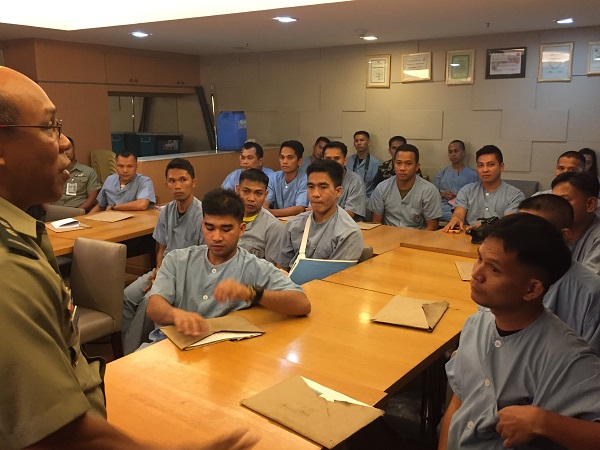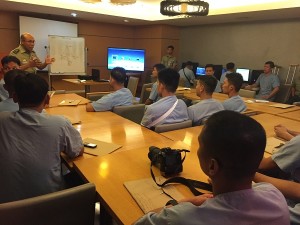Army’s approach to healing wounds of war

Some of Army’s battle casualties were recently given training on basic photography and computer literacy at the Army General Hospital to prepare them for non-combat duties once they are discharged from the hospital.
PRIVATE First Class Christopher Mejos had his second chance in life after his chest was grazed by a bullet from an AK47 assault rifle in a firefight with communist rebels in Misamis Oriental in 2013.
But he had been confined in a military hospital since then.
“We encountered almost 300 members of the New People’s Army in Barangay (village) Pelaez in Misamis Oriental last August 8, 2013 and I was shot in the chest and it broke my bone on the right side,” he said in an interview recently.
He was given first aid after the fighting but he was rescued only after two days in the mountains. Only two soldiers from the Army’s 88th Infantry Battalion were wounded, and his condition was critical then.
One year and seven months later, he remains under therapy and complains of a wire inside his chest that makes his breathing difficult.
Article continues after this advertisement“I have difficulty breathing because of the wire inside my chest but I cannot undergo surgery because I will have to use my own money. So I went here at the Philippine Army General Hospital to see what can be done,” he said.
Article continues after this advertisementHe was told that the surgery would cost about P300,000, including the doctor’s fee.
Mejos, 33, who has a live-in partner and two children, wants to go back to service but his body is weak.
“I love my country. I want to serve and stay here. I also get my financial support for my family here. I want to return, my will is strong but my upper body is weak,” he said.
He has already served nine years in the military service and wants to make it at least to 20 years.
“I hope I reach 20 years in service and then retire so I can support myself and my family,” he said.
Healing the wounds of war
Mejos was just one of the 42 battle casualties who were recently given a two-week training on combat photography and basic computer literacy at the Army General Hospital in Fort Bonifacio.
They were taught basic photography, equipment familiarization and basic theories in photo and video production. They were also taught with the basic computer skills such as using Microsoft programs, which will give them enough knowledge when they will be assigned to office or administrative functions once they are healed.

Some of Army’s battle casualties were recently given training on basic photography and computer literacy at the Army General Hospital to prepare them for non-combat duties once they are discharged from the hospital.
On the average, there are about 500 soldiers wounded in battle every year.
“When Army chief Lieutenant General Hernando Iriberri was visiting battle casualties he told me to think of a way to prepare them for non-combat duties once they get out of the hospital. Many of them are recuperating and they have plenty of idle time here. So as a public affairs officer, this is what I thought of. When they get out of here and join combat again they will be armed with an M-16 and a camera to record events from the frontlines,” Army spokesperson Lieutenant Colonel Noel Detoyato said.
Healing is not only a physical aspect but mental as well, according to the Army spokesman.
“We need to teach them skills that they will look forward to use once they get out of the hospital. That is one aspect of mental healing. They should feel that it doesn’t make them less of a soldier just because they are in the hospital. We have to mentally heal them to prepare then before they go out,” Detoyato said.
Because of the success of the training, more trainings will be made in the coming months, he said.
“Eventually after they retire they will still get to use these skills. So those who are still young in service they will be able to use these skills for a long while,” Detoyato said. AC